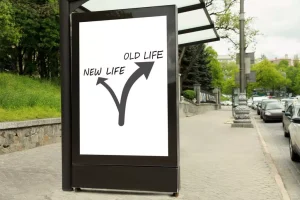
When I was out there drinking, over the years, I began to drift further and further away from reality as my alcoholism progressed. This tore apart the relationships with my wife and kids, co-workers, and long-time friends – anyone who loved or cared about me at all. The only time I was able to get out of my head was when I was good-n-drunk. But, I sure didn’t expect these feelings of loneliness to continue on in sobriety. If an individual has friends or family members that are supportive and encouraging, they should embrace those people in their life. Many times, loneliness in sobriety can lead a person to isolate themselves from others who are acting in their best interest.

Embracing Harm Reduction in Opioid Addiction Treatment
There is a big difference between feeling lonely and being alone. For those in recovery, it’s important to learn how to be comfortable with yourself without escaping to drugs or alcohol. These moments of solitude are opportunities to reflect and discover the creative, emotional and profound human you’ve always been. Instead, it can be a season of learning to love yourself and taking huge steps in your recovery process. It’s quite possible your choice to face addiction directly and the desire to live a healthy, sober life removed you from previous social circles and activities.

Identify Your Triggers
We place superior patient care as our highest priority and offer them all-inclusive treatment services. Feeling isolated — particularly early in recovery — can lead to depression, https://ecosoberhouse.com/ anxiety, low self-esteem, or shame, any of which can cause relapse. Loneliness can make people question the value of recovery, making the path to sobriety quite slippery.
- The best way to restore relationships is to continue to stay clean and sober, and to try to make amends.
- Furthermore, having a hobby or interest can be the catalyst in finding new friends, with similar interests.
- Be aware that some of those you have hurt while during addiction will not let you back into their lives.
- “Loneliness is unwanted mental or physical isolation that can negatively impact mental and physical health, sleep, and cognitive abilities,” according to PsychCentral.
- While loneliness can strike at any age, adolescence appears to be a particularly vulnerable time.
- Allow minutes for the email to arrive and please check your JUNK folder.
How loneliness can negatively affect recovery
After all, you can’t hang around your drug dealer or old drinking buddies and expect to remain sober for very long. Lasting recovery requires lasting effort, but relapse is not failure or weakness; it takes more than willpower to maintain sobriety. This article discusses the meaning of sobriety and arms you with information and strategies to smooth—and stay on—your path to wellness. Ioana has a Ph.D. in Communication Sciences and has been a freelance writer for over ten years. Ioana uses her passion for psychology, research, and mental health to create reliable resources on various topics relating to addiction and treatment. Learning to deal with the inherent loneliness in recovery helps you avoid the risks above and prevent relapsing.
Withdrawal Symptoms
Adults who are lonely may be more prone to abuse drugs and alcohol, or suffer a relapse. At Gateway Foundation, we understand the importance of community and peer support. During your personalized addiction treatment program, you are surrounded by our friendly team and others battling addiction in a safe and supportive care environment. While the journey may be lonely at times, you are never truly alone. Humans are social creatures, and relationships play a huge role in our physical, mental and emotional well-being. A lack of friendships and close connections can lead to relapse.
Shame is having negative beliefs about yourself and your self-worth. People in recovery can experience a lot of shame simply for having become addicted in the first place. Some of the immediate changes you will need to make will be obvious—like not hanging around the people that you used with or obtained drugs from.
Her writing explores themes around mental well-being, culture, psychology, trauma, and human intimacy. Other research echo similar findings about chronic loneliness and note that sufferers of chronic loneliness also have a higher chance of needing psychotropic medications. By Michelle PugleMichelle Pugle, MA is a freelance writer and reporter focusing on loneliness in sobriety mental health and chronic conditions. As seen in Verywell, Healthline, Psych Central, Everyday Health, and Health.com, among others. Some studies find that this structure, along with a start date for sobriety and milestones, is important to some people in recovery. Cravings, which are intense urges to use substances, can tempt you to break sobriety.
What Is the Danger of Isolation in Recovery?

It can make you feel more energized and motivated, and can help keep negative thoughts at bay. The idea of HALT is a great way to remember the signs needed to take a break or reach out for support from someone positive in your life. I am fortunate enough to work in the mental health field, which has allowed me to be surrounded by people who understand and can help me stay on track.